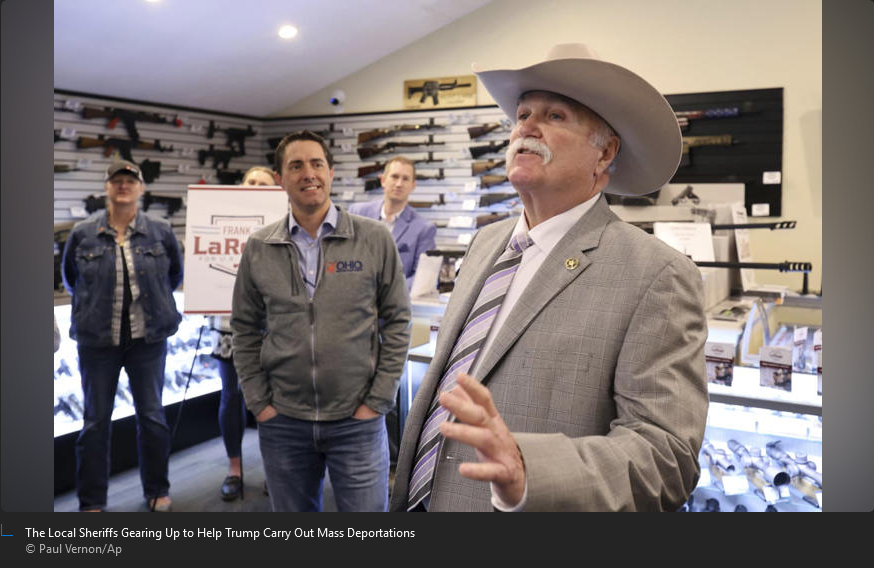BASED GRAND JURY INDICTS THE COP INSTEAD! |
ARRESTED TRYING TO SAVE HIS HOME FROM FIRE
I shared this yesterday.... But needed to share again!
If YOU get put on a JURY or GRAND JURY you have immense power!
YOU need to stop allowing that power to be used to cage your fellow Americans,
and instead use that power to see that
#Police and especially PROSECUTORS are held accountable!
These people have the power to DESTROY LIVES in their hands!
And they wield as if they are playing monopoly or something!
They try to convict people of heinous crimes, when they know full well that MAN never committed the crime.... They will "shoe-horn the crime to fit their actions"
This is neither the "Spirit of the Law" nor is this decent, ,oral behavior!
It's time these people see the inside of the cages they so enjoy putting others into!
JURY NULLIFICATION is a powerful DEFENSE against these criminals!
But this jury went a step further, and they did the RIGHT THING!
It's time to STOP THE CRIMINALITY within Police and Sheriff Departments across the United States! The entire system is based on
#Fraud anyway! It operates under "Maritime Admiralty Law" which has no
#Jurisdiction over MEN & WOMEN unless they are at SEA or they "Consent" to be a
#Slave under this system!
Americans DON'T KNOW THIS!
But by "voting" or claiming that you are a "US Citizen" you are CONSENTING!
You must learn how to remain within the PROPER JURISDICTION...
Which is COMMON LAW!
Don't let them trick you using their criminal "Implied Consent Doctrine" either! This is important folks! This system must fall
This man was likely facing 50 YEARS in prison for the
PHONY, TRUMPED UP, BS CHARGES THE POLICE CHARGED HIM WITH....
Those Police Officers should be convicted and sentenced to that amount of time! They should get DOUBLE the time of the harshest possible sentences for these BOGUS "crimes" they charged this man with!
HE COULD HAVE LOST THAT MUCH OF HIS INNOCENT LIFE BASED ON LIES, SO THEY, AS THE LIARS, SHOULD GET DOUBLE THE MAXIMUM TIME FOR FILING THE BOGUS CHARGES!
https://old.bitchute.com/video/jtRU3vZI-QU/BASED GRAND JURY INDICTS THE COP INSTEAD! |
ARRESTED TRYING TO SAVE HIS HOME FROM FIRE
I shared this yesterday.... But needed to share again!
If YOU get put on a JURY or GRAND JURY you have immense power!
YOU need to stop allowing that power to be used to cage your fellow Americans,
and instead use that power to see that #Police and especially PROSECUTORS are held accountable!
These people have the power to DESTROY LIVES in their hands!
And they wield as if they are playing monopoly or something!
They try to convict people of heinous crimes, when they know full well that MAN never committed the crime.... They will "shoe-horn the crime to fit their actions"
This is neither the "Spirit of the Law" nor is this decent, ,oral behavior!
It's time these people see the inside of the cages they so enjoy putting others into!
JURY NULLIFICATION is a powerful DEFENSE against these criminals!
But this jury went a step further, and they did the RIGHT THING!
It's time to STOP THE CRIMINALITY within Police and Sheriff Departments across the United States! The entire system is based on #Fraud anyway! It operates under "Maritime Admiralty Law" which has no #Jurisdiction over MEN & WOMEN unless they are at SEA or they "Consent" to be a #Slave under this system!
Americans DON'T KNOW THIS!
But by "voting" or claiming that you are a "US Citizen" you are CONSENTING!
You must learn how to remain within the PROPER JURISDICTION...
Which is COMMON LAW!
Don't let them trick you using their criminal "Implied Consent Doctrine" either! This is important folks! This system must fall
This man was likely facing 50 YEARS in prison for the
PHONY, TRUMPED UP, BS CHARGES THE POLICE CHARGED HIM WITH....
Those Police Officers should be convicted and sentenced to that amount of time! They should get DOUBLE the time of the harshest possible sentences for these BOGUS "crimes" they charged this man with!
HE COULD HAVE LOST THAT MUCH OF HIS INNOCENT LIFE BASED ON LIES, SO THEY, AS THE LIARS, SHOULD GET DOUBLE THE MAXIMUM TIME FOR FILING THE BOGUS CHARGES!
https://old.bitchute.com/video/jtRU3vZI-QU/














